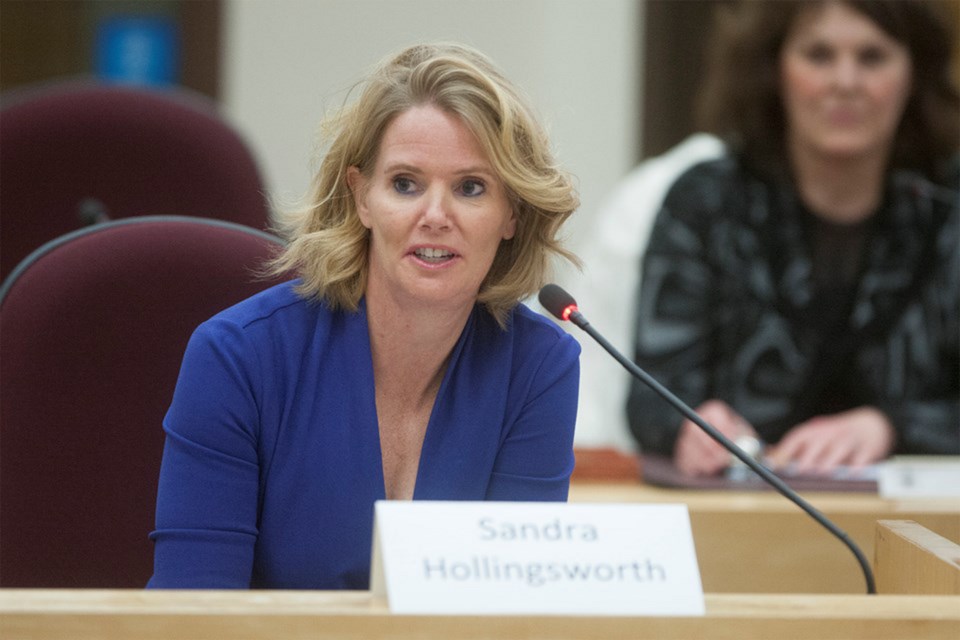Sault Ste. Marie's two downtown methadone clinics were discussed at tonight's meeting of City Council, with Ward 2 Councillor Sandra Hollingsworth regrettably referring to them as "meth labs."
"How can we, in the future, potentially be more selective of who can open up a business downtown?" Councillor Hollingsworth asked during a discussion about downtown revitalization.
"For example, I do receive a lot of comments from families and they are concerned about the meth labs and I need to bring this up," she said.
At this point, Mayor Christian Provenzano interrupted Hollingsworth to point out the distinction between a clandestine methamphetamine lab, where a powerful and dangerous central nervous system stimulant is illegally manufactured; and a methadone clinic where an entirely different drug is lawfully prescribed by physicians to treat opioid dependence.
"Councillor Hollingsworth, there are no meth labs downtown," the mayor said.
"Or the clinics, I should say. I apologise," the Ward 2 councillor replied.
Hollingsworth nonethless continued to push her concerns about the downtown methadone clinics.
"That is what I would like to focus on, that particular question" she said, "because it is concerning to a lot of our families that want to spend more time downtown."
Don McConnell, the city's planning director, advised Hollingsworth that "the city doesn't control who can or can't open a business downtown, other than through the zoning bylaw."
"Where we have a property that is zoned commercial, basically any commercial business could open in there, whether it be a bank, a clothing store, an art gallery, a dentist's office, a doctor's office or a meth clinic," McConnell said.
"For us to go in and start picking and choosing would be difficult. If council wishes, the way to deal with that would be to ask for a report to prohibit meth clinics from a particular area of town. I don't know how successful that would be, but that would be the only way that we could control who moves into an area. I'm not saying I recommend that, but that would be the only way to go about that control," said the planning director.
"We can zone uses....We have to be very careful in terms of other restrictions and how we might limit activities," added Melanie Borowicz-
"There is case law that talks directly on that point. It deals with issues of discrimination and human rights."
Ward 6 Councillor Ross Romano, who has also been chair of the Queenstown Business Improvement Area (formerly the Downtown Association) for more than half a year, said he's only heard concern expressed about the methadone clinics on one occasion.
"I have never really heard any extensive complaints. The concerns about the merchants and the majority of people downtown are centering around other issues."
"These are people who are trying to rehabilitate themselves and help themselves out. Let's not let that be lost on us," Romano said.
"Before we jump on a bandwagon with respect to the meth clinic, let's bear in mind and be cautious about what we're talking about here. Let's not forget to be open-minded about what that clinic is there for."
A report prepared by Victoria Prouse, project coordinator for the city's downtown development initiative, was presented to City Council last night.
Among its recommendations:
- strongly encourage all public-sector buildings to locate downtown
- replace trees on Queen Street
- a signature park on the Gateway property
- Bay Street lane reduction
- looking at reverting to two-way streets downtown
- new affordable housing
- extending the Hub Trail to James Street
- establishing a waterfront park on the Suncor property
- encourage downtown programming using sidewalk patios and flexible plaza spaces
- cultivate a sense of place and downtown identity
- combating commercial vacancies
- encouraging non-office uses
- establishing a resilient and diverse neighbourhood
Councillors authorized a community outreach program to engage downtown stakeholders and community members, using social media, online input and open-house events.
